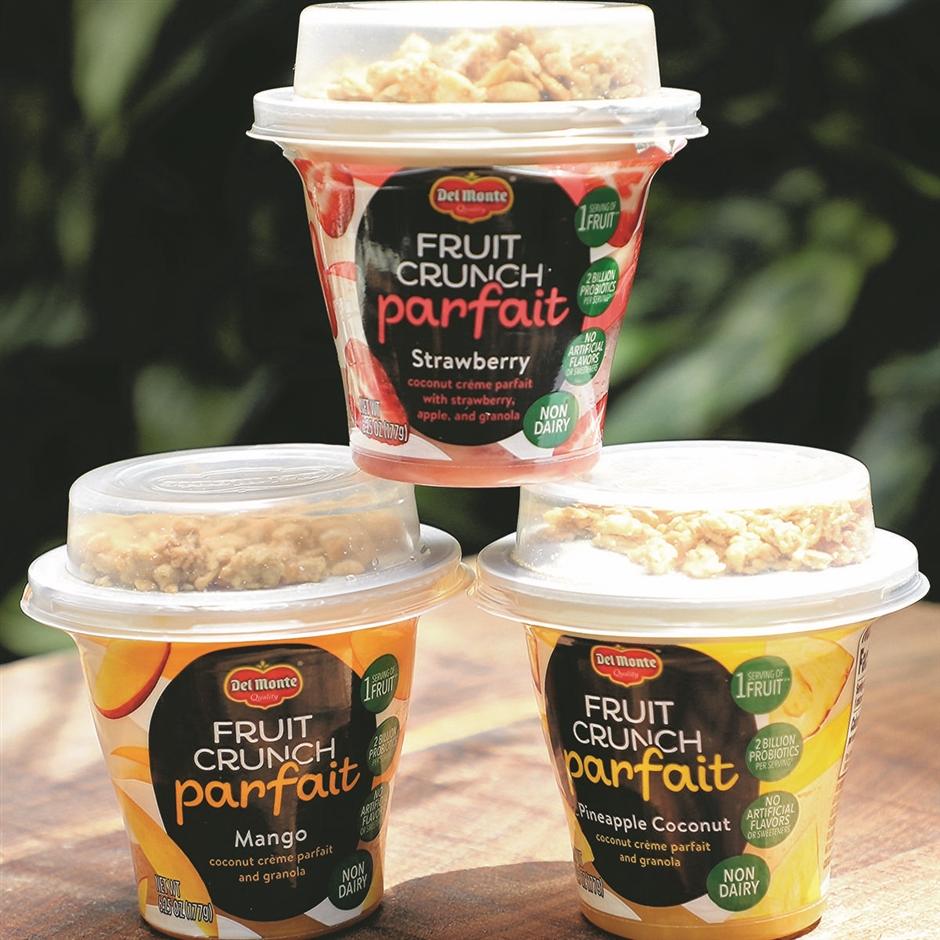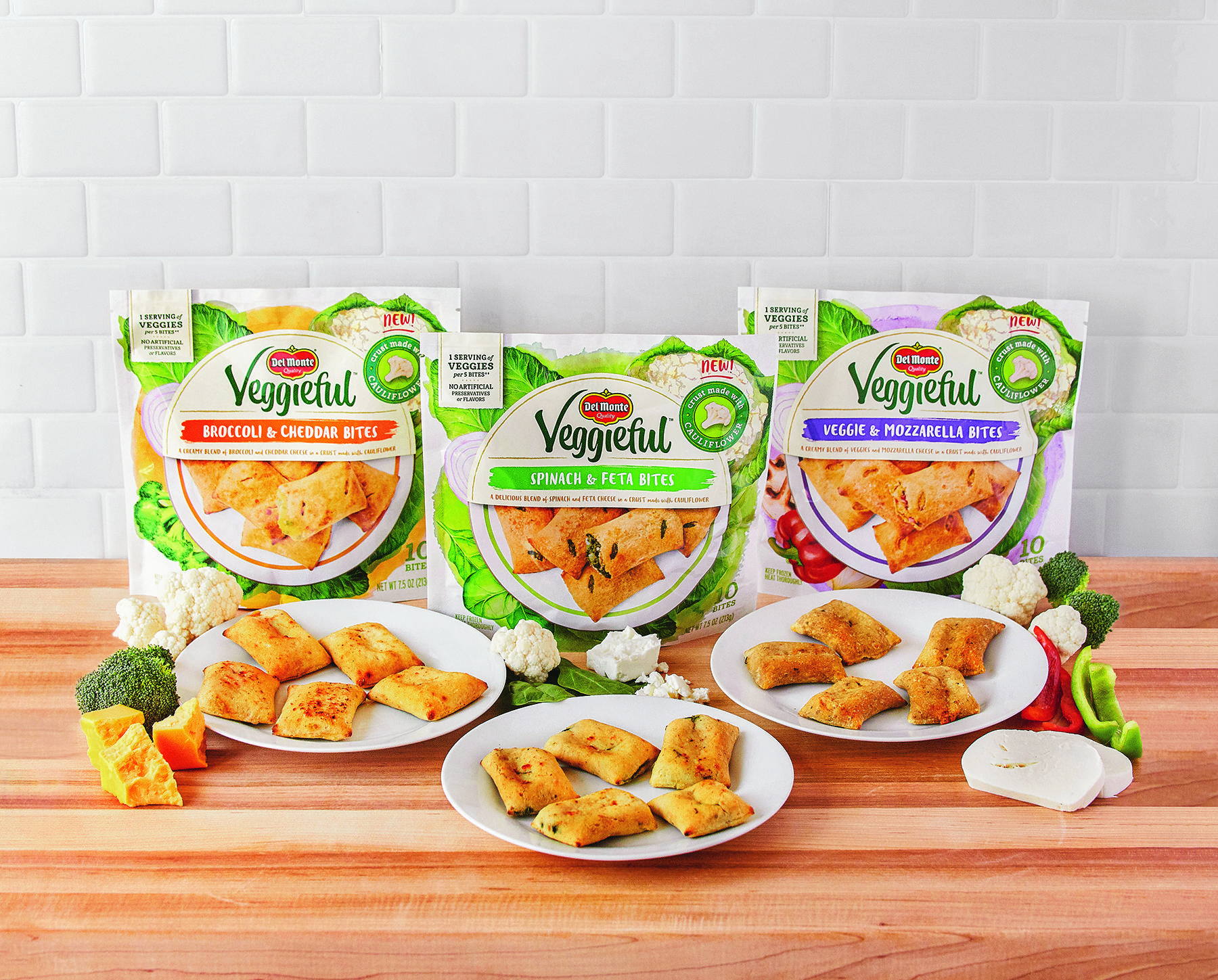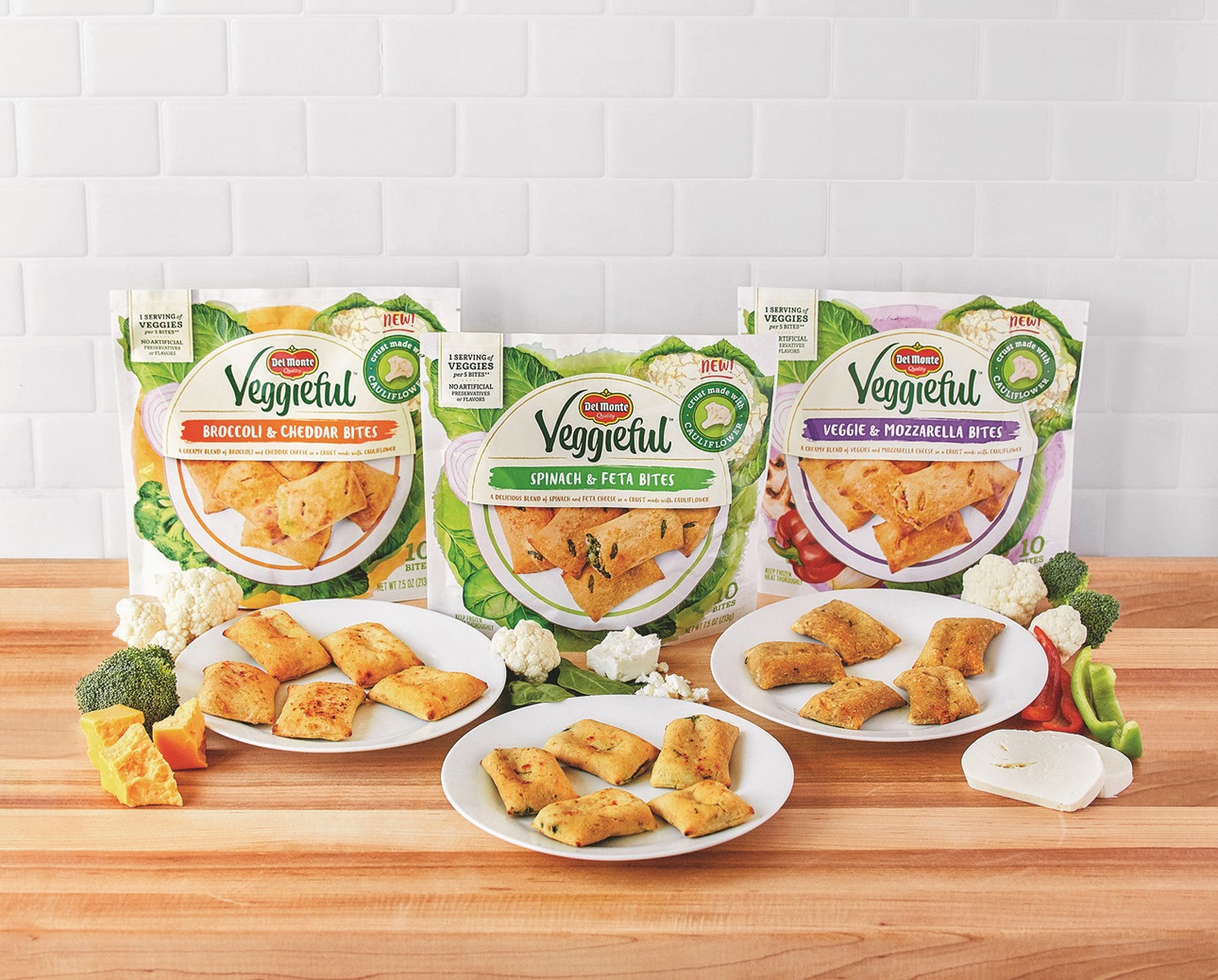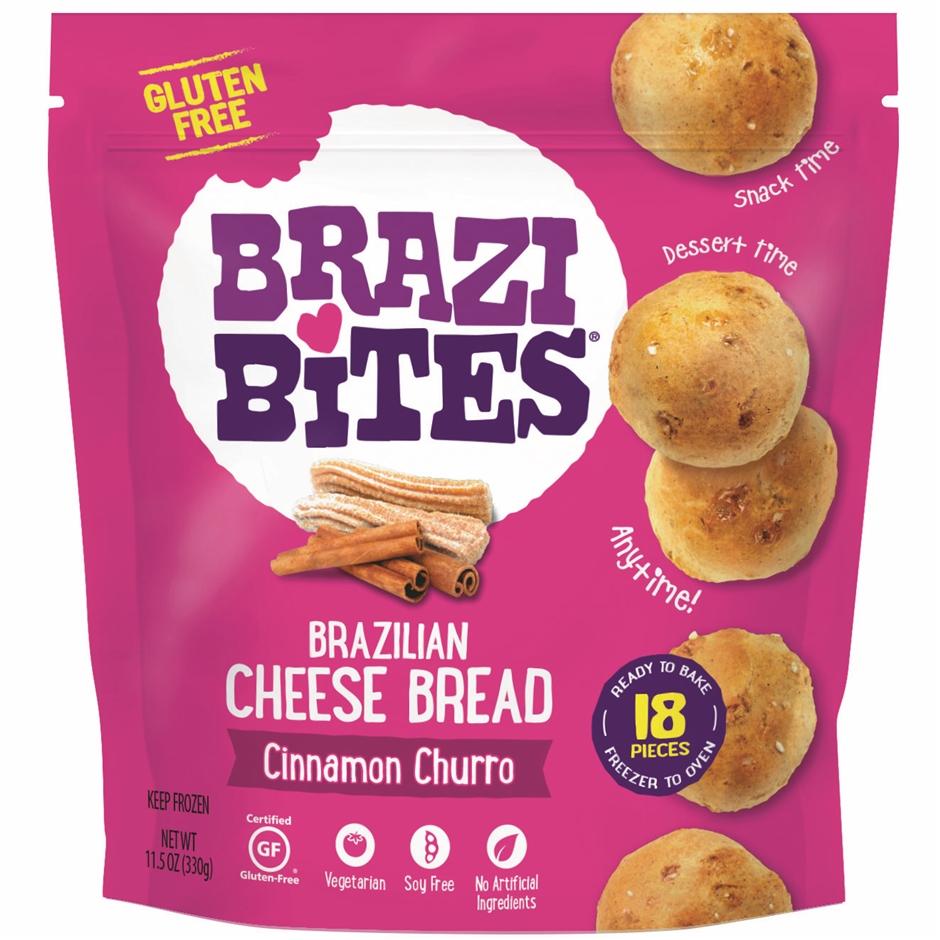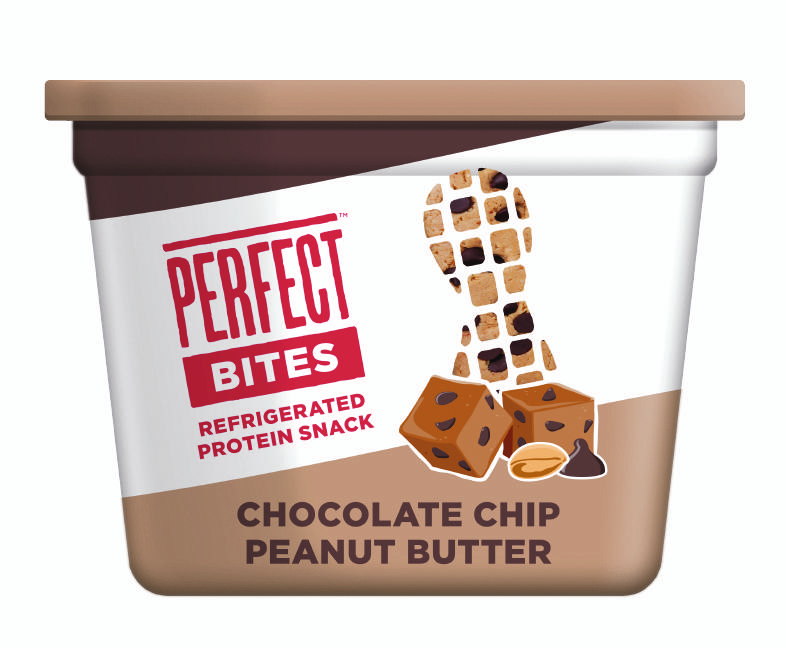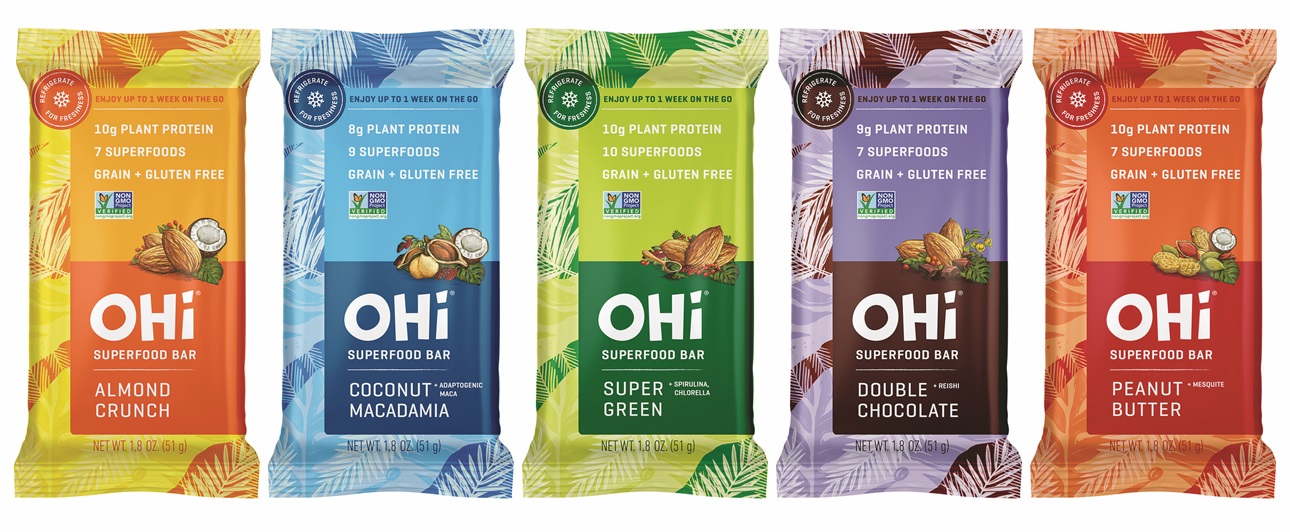
Cold Snacks Heat Up
Food companies perceive the potential of refrigerated and frozen snacks, which are considered cleaner label than their shelf-stable counterparts.
Article Content
Although nutritious shelf-stable snacks, from protein bars to jerky, continue to hold their own in supermarkets and convenience stores, a revolution has been taking place in refrigerated cases and freezers: the explosion of grab-and-go chilled snacks and the emergence of better-for-you frozen snacking options. The refrigerated snacks segment in the United States is especially fast growing, generating approximately $20 billion in annual sales and representing one-third of the U.S. snacking market, according to Mintel. Within that segment, well-being snacks such as packs with nuts and fruit, hummus, yogurt, and chilled nutrition bars have increased the most in sales, growing 8% a year over the past three years (Mondelez 2019).
While frozen snacks as a whole have slowed in growth in the United States, according to a Mintel survey, consumption has increased among parents of children younger than 18. In this demographic group, 27% of survey respondents said that their families were eating frozen snacks more often than in the previous year, while 21% said their families were eating them less often (Mintel 2019).
Somewhat less convenient than ready-to-eat (RTE) snacks for consuming on the go, frozen snacks are, nonetheless, fast and easy to prepare in a microwave oven, making them an ideal choice for home consumption. Middle school-aged kids can prepare such snacks themselves, while parents relish the convenience of healthful frozen items. Highly flexible, hors d’oeuvre–sized portions can be combined into a meal if need be or consumed a few at a time for a snack or appetizer. Given the debut of many new lines of frozen bites and other handheld snacks, it’s clear that the food industry sees potential in this segment—particularly in nutritious, free-from, and internationally inspired selections.
Melissa Abbott, a vice president at The Hartman Group, observes that refrigerated and frozen snacks are complementary, catering to different snacking occasions. “As meals and snacks become increasingly blurred, there is a bifurcation between ‘immediate consumption’ and ‘planned spontaneity,’” she says. “As such, super-fresh refrigerated snacks or meal-like snacks are capturing more attention from consumers who are expecting fresher, higher-quality, and perfectly portioned offerings that speak to macronutrients, such as protein and fiber, typically found at meal occasions.
“The shift to frozen is particularly interesting, as more consumers are seeking flexible options to have on hand that can fulfill compartmentalized eating from manufacturers that can [deliver] less-processed and global flavors within more common formats, such as flatbreads and vegetable-based snacks.”
As Abbott notes, both refrigerated and frozen snacks facilitate the new approach to eating, in which consumers mix and match what were once considered side dishes into a whole meal or graze on healthful snacks and sides throughout the day.
Convergence of Trends
Indeed, food processors of all sizes are foraying into refrigerated and frozen snacks, driven by several simultaneous consumer trends, including the penchant for snacking rather than eating large meals; the perception that refrigerated foods and frozen items are less processed than shelf-stable products; and the passion for unconventional combinations of flavorful, fresh wholesome foods and ingredients. The last trend is reflected in the proliferation of chilled snack packs, such as the Balanced Breaks line by Plymouth, Wis.–based Sargento Foods and the P3 (Portable Protein Pack) line by Kraft Heinz, Chicago—products that combine cheese and/or meat; nuts or other plant-based proteins; and dried fruit or chocolate.
In food retailers’ refrigerated cases, which have expanded in size and number, store brand and deli-prepared offerings share space with name-brand and startup-brand packaged snacks. In the frozen space, nutrient-dense products are gaining traction. To take advantage of such opportunities, big name food manufacturers are venturing into new categories and types of shelf space, while small companies are rolling out novel noshes in unexpected formats and locations in the store.
For example, snack food giant Mondelez International, which will relocate its headquarters from Deerfield, Ill., to Chicago in April, is famous for its iconic center-store brands in the cookie, cracker, and candy categories. Nevertheless, in July 2019, the company purchased a majority stake in San Diego–based Perfect Snacks, a pioneer in refrigerated nutrition bars.
“Refrigerated snacking is a growing category,” explained Glen Walter, an executive vice president of Mondelez and president of the company’s North American business, in a Chicago Tribune interview in December 2019 (Elejalde-Ruiz 2019). “I’m looking for brands that have got authentic stories behind them, brands that have passionate and engaged owners behind them.” The sibling cofounders of Perfect Snacks, Bill and Leigh Keith, launched their company to share the clean label, whole food innovations and philosophy of their late father, Bud Keith, a wellness evangelist who created vitamin-enriched chilled snacks of peanut butter and honey for his 13 children to eat (Perfect Snacks 2019).
Another company that has entered new territory is Minong, Wis.–headquartered Link Snacks, best known for the widely retailed Jack Link’s brand of beef jerky and other shelf-stable meat snacks. The brand rolled out its refrigerated Cold Crafted line of meat and cheese combos and bites in convenience stores in March 2018 and in grocery stores and mass market retailers in May 2019.
“As a leader in protein snacking, we’re constantly looking at trends and opportunities across all protein categories,” says Cold Crafted brand director Collin Frantz. “Within the refrigerated snacking portfolio, protein combinations like meat, cheese, and nuts are one area where we’re seeing tremendous growth. The category has converged on three major consumer trends—protein, fresh foods, and snacking.”
Nearly two-thirds of American consumers are looking to add more protein to their diet, Frantz notes. “This trend has certainly impacted the broader Jack Link’s business but also has opened up innovation opportunities in new categories, like refrigerated snacking,” he says.
The Cold Crafted line currently consists of 18 SKUs that combine 100% beef with Wisconsin cheese, including such pairings as Beef and Cheddar Bites and Beef and PepperJack smoked meat and cheese sticks. Since the line is refrigerated, points out Frantz, “we can remove preservatives and deliver a clean-tasting snack.
“Because fresh food options are a priority for many consumers (and retailers), the refrigerated case is continually evolving and opening up shelf space,” Frantz adds.
Prioritizing Flexibility, Innovation
Although known primarily for canned fruit and vegetables as well as packaged and fresh-cut produce, Del Monte Foods, Walnut Creek, Calif., is not a newcomer to chilled snacks, having attained success with its refrigerated Fruit Naturals line, launched more than a decade ago. Chilled fruit chunks were innovative at the time, but Del Monte decided a few years ago that it had to do more to stand out and meet the needs of contemporary consumers, says Mario Di Falco, Del Monte’s senior director of innovation & new ventures. In the past couple of years, the company has explored new frontiers in product development and marketing, with a focus on healthful, clean label snacking.
In the refrigerated space, Del Monte last fall debuted nondairy Fruit Crunch Parfaits in strawberry, blueberry, mango, and pineapple coconut flavors. The parfaits include layers of fruit, coconut crème, and honey oat granola; each provides a full serving of fruit and 2 billion colony-forming units of probiotics (added to promote digestive health and position the product as an alternative to yogurt-based parfaits).
In 2019, Del Monte also launched two snack lines in the freezer case:
• Veggieful Bites consist of vegetables and cheese baked in a cauliflower and whole wheat crust. Available in three varieties— BroccoliandCheddar, SpinachandFeta, and Veggie and Mozzarella—the frozen bites are free of artificial preservatives and flavors. Five bites deliver a full serving of vegetables and 9 grams of protein.
• Positioned as a healthful alternative to pizza rolls, Contadina Pizzettas also have no artificial flavors or preservatives and come in three SKUs: Garden Vegetable, Four Cheese, and Margherita. Baked in a cauliflower and whole wheat crust like the Veggiefuls, five of these bites provide a full serving of vegetables and 8–10 grams of protein.
“With our heritage and the quality we’ve brought to fruits and veggies and packaged produce, we understand consumers, and we know that the way they’re snacking is changing so much,” Di Falco explains. “To continue to deliver on our promise, we needed to go into these other spaces, as they are forms and formats that consumers are looking for today.”
The triple-layer Fruit Crunch Parfait is a platform Del Monte intends to expand on, tapping growing consumer interest in dairyfree product alternatives. “We’re on the leading edge of that trend with a nondairy option that has a full serving of real fruit,” Di Falco says.
Similarly, the freezer case will only grow in importance for Del Monte. “That area has transformed from not-so-good-for-you prepared meals to lots of great brands offering better-for-you options,” Di Falco notes.
“Knowing that our consumers buy a lot of frozen products beyond frozen vegetables and single-serve meals, we knew we should be playing in that space because consumers are already over there,” he adds.
Frozen Chosen for Under-Tapped Potential
Junea Rocha, cofounder and chief marketing officer of Portland, Ore.–based frozen food firm Brazi Bites, also believes that the freezer section has tremendous potential. Rocha, who founded the company with her husband, Cameron MacMullin, in 2010, had a hunch that the soft, rounded, flavorful cheese bread she missed so much from her native Brazil would be a hit with American consumers. Her instincts proved correct.
Distributed in 10,000 stores in the United States, Brazi Bites Brazilian Cheese Bread today is available in four flavors: Cheddar & Parmesan, Garlic Asiago, 3 Cheese Pizza, and recently debuted Cinnamon Churro. The gluten-free bread is made with tapioca flour and real cheese and does not contain artificial flavors or preservatives.
The company also introduced a line of bite-sized empanadas last year. Brazi Bites Empanadas come in four varieties: Black Bean & Cheddar, Chicken & Cheese, Beef & Bean, and Chickpea Veggie. Rather than fullsized handheld empanadas, a staple Latin American street food, Brazi Bites decided to focus on snack-size bites to cater to Millennial and younger consumers.
“Brazi Bites is part of what we’re calling a ‘Freezer Revolution,’” Rocha says. “For years the freezer was associated with junk food and very repetitive. We are part of a wave that’s bringing innovation to the freezer and bringing consumers back to the freezer.
“It’s a place where you can actually have better-for-you items because the freezer acts as a preserver,” she continues. Consequently, preservatives can be removed that are required in shelfstable snacks, while frozen products have a much longer shelf life than refrigerated items. It’s a win-win for consumers,combining nutrition and convenience, she emphasizes.
Fresh and Portable
For on-the-go convenience plus healthful attributes, however, it’s hard to beat a bar. Since Perfect Snacks debuted the first refrigerated protein bar in 2005, the company has expanded its Perfect Bar lineup to include such SKUs as Peanut Butter, Coconut Peanut Butter, Blueberry Cashew, Chocolate Walnut Brownie, Mocha Chip, Dark ChocolateAlmond, AlmondButter, Dark Chocolate Chip Peanut Butter, Maple Almond, Fruit & Nut, and Salted Caramel. Each bar has between 10 and 17 grams of protein.
“The concept of having a protein bar that required refrigeration wasn’t so much a decision as much as it was the way our dad originally crafted the recipe for us when we were kids, in an effort to make a fresh snack that was both tasty and convenient,” explains Bill Keith, Perfect Snacks’ chief executive officer.
Perfect Bars consist of freshly ground nut butter as the base plus a “superfood blend” that includes whole food ingredients such as kale, papaya, flax seed, rose hips, orange, lemon, carrot, and spinach. The bars also contain honey as a natural binder. In contrast, shelf-stable bars typically include emulsifiers such as soy lecithin, Keith says.
He notes that in the company’s early years, before fresh snacking took off, it was difficult to secure refrigerated shelf space because category managers didn’t understand the purpose of a chilled protein bar. To build brand awareness, Perfect Snacks held a multitude of product sampling demonstrations in stores, which allowed consumers to taste the difference between the company’s organic refrigerated bars and shelf-stable bars. Today, Perfect Bars are retailed in more than 20,000 stores in the United States and western Canada.
In the past couple of years, Perfect Snacks has launched additional refrigerated lines, including Perfect Kids in 2018 and Perfect Bites in 2019. Available in two SKUs— Chocolate Chip and Peanut Butter Cookie—the Perfect Kids bars contain 7 grams of protein and eight “superfood” ingredients. Packaged in a four-serving cup, the Perfect Bites line also includes two SKUs: Peanut Butter and Chocolate Chip Peanut Butter. The products contain 7 grams of protein in each serving.
Several other companies now manufacture refrigerated nutrition bars. Phyter Foods, in West Chicago, Ill., for one, makes five varieties of organic, gluten-free, plant-based bars: Beet + Cocoa, Berries + Peanut Butter, Butternut Squash + Peanut Butter, Kale + Apple, and Sweet Potato + Coconut.
Phyter bars require refrigeration because they contain no preservatives, says Gloria Athanis, who oversees marketing for Phyter and is one of the company’s three owner-partners. “The main ingredient in our bars is a fresh, pureed vegetable or fruit. A lot of bars claim to contain fruit, but if you look at the label, it’s usually the fourth or fifth ingredient, and it’s usually dehydrated. But we’re mak-ing the vegetable or fruit the main event.”
Phyter’s bar recipes are developed by coowner and partner Chef David Choi Jr., formerly the head chef in his family’s vegan Korean restaurant in Chicago. Choi originally created vegetable-based bars as a college student because he couldn’t find nutritious vegan snacks on campus. He began to hand them out to friends, who thoroughly enjoyed them, Athanis explains.
Choi and Athanis, who had known each other for years, decided to go into business together to champion clean eating, hold cooking demonstrations, and share the bars at various venues. They ultimately connected with their other business partner, Jeff Adeszko, who provided the funding to build the Phyter Foods kitchen in West Chicago. The company’s bars are certified organic, GMO-free, vegan, and kosher, as well as gluten-free, soy-free, and dairy-free.
“There is a balance between tasting good and being healthy, and we have found that balance,” Athanis maintains.
Phyter, which had its retail launch in 2016 in a Chicago Whole Foods store, now distributes its bars in more than 400 stores throughout the Midwest and on the East Coast, including all of Whole Foods’ Midwest locations. Phyter bars are even distributed at two locations at Chicago’s O’Hare Airport.
From the date of manufacturing, Phyter bars have six months of refrigerated shelf life (including the time in the store), according to Athanis. They can be left unrefrigerated for up to three days, she adds, noting that they are a handy snack to place in a backpack or a kid’s lunchbox, or to enjoy on a long flight.
Another manufacturer of refrigerated bars, Costa Mesa, Calif.–based OHi Food Co., offers five SKUs of plant-based, grainfree, gluten-free OHi Superfood Bars: Coconut Macadamia, AlmondCrunch, DoubleChocolate, SuperGreen, and Peanut Butter. Dawn Anderson, the company’s founder and CEO, developed her first bar recipes in her kitchen while living in Maui, Hawaii.
“The OHi Superfood Bar was created from my need to have greattasting healthy snacks on the go,” Anderson explains. “How could I pack as much nourishment as possible into a single on-the-go package? My inspiration pretty much came from using everything I typically put into my morning smoothie.
“Using Mother Nature’s natural preservative of ‘cold’ allows refrigerated snacks like OHi Superfood Bars to be free from using preservatives, to use minimally processed ingredients, to naturally bind the ingredients, and to slow down the process of rancidity,” she elaborates. Many [shelf-stable] bars use artificial ingredients and concentrated sugars like brown rice syrup, or they are dehydrated or baked in order for the bars to stay together; we use cold as a binder.”
Not using dehydrated ingredients means that the bars retain more moisture, “which is great for taste, texture, and nutrition,” Anderson explains.
Meat and Poultry Processors’ Snacking Solutions
Already an established presence in the refrigerated section, meat and poultry processors have plunged into the chilled snacks market in a major way, taking advantage of the consumer craze for high-protein snacks. OscarMayerNaturalMeatand Spreadable Cheese Plates, Hormel Natural Choice snack packs, and Applegate Naturals Charcuterie Plates are just a sliver of the available offerings.
In late 2019, Butterball, Garner, N.C., introduced its new singleserve refrigerated Premium Snacks line, which includes three snack pack SKUs featuring seasoned, carved turkey breast: Cajun Style, with cornbread crisps and dried apple pieces; Citrus Teriyaki, with sesame sticks and dried pineapple pieces; and Thanksgiving, with stuffing bites and dried cranberries. Each 2.4-ounce pack contains 10 grams of protein.
“Not only have we seen a surge in snacking in recent years, but we’ve seen a shift in the way people snack,” says Michelle Lieszkovszky, marketing manager–emerging innovation for Butterball. “Snacking has become a lifestyle, with 95% of Americans reporting that they snack daily and 70% indicating they snack two or more times per day, according to IRI. With this increase in frequency of snacking, we’ve found that people are looking for healthier and more filling snacking options, and turkey being a naturally lean protein easily fits this need.”
In addition, many consumers use snacks as a way to add variety to their diet and explore new flavors, Lieszkovszky says. “With these insights in mind, we created this new portfolio of Butterball Premium Snacks to offer consumers a healthy snacking option that doesn’t skimp on flavor.”
The functional food or food-as-medicine movement has had a big impact on chilled snacks as well. In September 2019, Tyson Foods, Springdale, Ark., announced the debut of Pact Snack Bites, a line of refrigerated functional protein snacks that is being tested on Indiegogo, a crowd-funding platform, before a broader rollout. The campaign invites Indiegogo’s early adopter community and brand advocates to try the product and provide real-time feedback.
Pact Snack Bites are made with real fruit and nuts and contain more than 10 wholesome ingredients per serving, including such functional ingredients as live probiotic cultures, prebiotic fiber, and collagen protein, according to Tyson.
The line is launching with four SKUs: Gut Instinct—Cranberry + Kombucha Probiotic Snack Bites; Gut Ahead—Turmeric+ Ginger Prebiotic Snack Bites; Glow With It—Cocoa + Coconut Collagen Snack Bites; and Vibe On—Mint Matcha + Blueberry Energizing Snack Bites. Each single-serve, 1.8-ounce pouch features 8 to 10 grams of protein, 3 or 4 grams of fiber, and 200–220 calories per serving.
“Consumers are looking for delicious, convenient foods to deliver essential protein and other functional benefits,” said Noelle O’Mara, group president of prepared foods for Tyson Foods, in a statement. “As one of the largest food companies in the world and a leader in protein, we are in a strong position to capture that demand as we continue to innovate with exciting new products like Pact.”
Sixty-five percent of people are seeking foods with functional benefits while the number of snacking occasions continues to increase as the lines among breakfast, lunch, and dinner blur (Kerry Ingredients 2018).
“We are innovating at the intersection of these trends,” said O’Mara, “giving consumers more convenient, nutritious snack options.”
R E F E R E N C E S
Elejalde-Ruiz, Alexia. 2019. “Mondelez aims to be a ‘snacking powerhouse.’” Chicago Tribune, Dec. 27.
Kerry Ingredients. 2018. Proactive Health, white paper. https://kerry. com/na-en/explore/proactive-health-white-paper##report
Mintel. 2019. Frozen Snacks, U.S. Mintel Intl., Chicago. mintel.com.
Mondelez. 2019. “Mondelez International to Acquire a Majority Interest in Perfect Snacks.” Press release, June 19. Mondelez International, Deerfield, Ill. mondelezinternational.com.
Perfect Snacks. 2019. Our story. https://perfectbar.com/our-story/.


